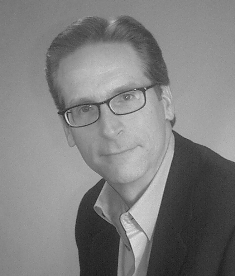 Tom Corboy is the founder and director of the OCD Center of Los Angeles. He talked to WTCI via email about what he does and how he came to be doing it.
Tom Corboy is the founder and director of the OCD Center of Los Angeles. He talked to WTCI via email about what he does and how he came to be doing it.
What’s your background? What do you do now?
I received my master’s degree from the Department of Counseling Psychology at the University of Southern California (USC) in 1993. My USC graduate thesis was a study comparing various treatments for Obsessive Compulsive Disorder (OCD). In conducting my research, I learned that numerous controlled studies had consistently found a specific type of Cognitive Behavioral Therapy called Exposure and Response Prevention (ERP) to be the most effective treatment for OCD. Much of my post-graduate training was focused on CBT and various exposure therapies like ERP for the treatment of OCD, Panic Disorder, and related Obsessive Compulsive Spectrum Disorders. During my post-graduate training, I also started a weekly, CBT-based, OCD therapy/support group for adults that has been running continuously since 1997.
I am currently the director of the OCD Center of Los Angeles (OCDLA), which I founded in 1999. OCDLA is a private, outpatient treatment center dedicated exclusively to the treatment of OCD and related OC Spectrum Disorders, including Panic Disorder, Social Anxiety, Body Dysmorphic Disorder (BDD), Health Anxiety (Hypochondria), Phobias, Trichotillomania (compulsive hair pulling), and Dermatillomania (compulsive skin picking, or CSP). We have four therapists on staff, all of whom specialize in CBT for these conditions. We treat adults, adolescents, and children, and offer services in both English and Spanish.
Our program primarily focuses on weekly, outpatient, individual CBT sessions, but may also include intensive daily sessions, family sessions, home visits, or couples sessions. Individual sessions often includes “in-vivo” field therapy, during which our staff therapists help clients face their anxiety in real-life situations. We also have ten structured CBT therapy/support groups–six for adults and four for children and adolescents.
How did you go about growing from one person with a specialty into a center with multiple therapists?
Even while doing my post-graduate hours, I knew that I wanted to have a niche practice focused exclusively on OCD and related anxiety-based disorders. After I completed my hours and passed the California state licensing exams, I subleased a small office and opened the center, which was originally just a solo private practice.
Since then, the growth of the center has been very gradual and based on increased client demand for services. After a couple of years of solo private practice, my client base had grown to the point that I hired a post-graduate MFT intern to see additional clients. After another year or so, we both had full schedules, so I hired a second MFT intern, and took over the lease of the entire suite that housed my original subleased office. And a year after that, I hired a post-graduate MSW associate.
For the past five years or so, the center has consistently had 3-4 therapists on staff. Most of the interns and associates have stayed on after receiving their licenses. One staff therapist, Danielle Lieb-Foley, eventually moved to Oregon after getting licensed and opened a similar clinic called the Portland OCD and Anxiety Center. As I said, the growth of the center has been very gradual – we have only expanded when it has been clear that our client load warranted hiring additional staff and renting more space.
How do you choose staff? How do you recommend people get trained in ERP?
Choosing staff is a critical issue for a niche center like ours. Our treatment program is very structured and extremely specialized. Unfortunately, the vast majority of graduate programs provide only minimal training in CBT, and no training in ERP. When hiring, I look for people who have had some additional education and training in CBT and ERP, and ideally, some experience with using CBT and ERP to treat anxiety disorders.
The OCD Center is fortunate in that we are now established to the point where young therapists with a specific interest in the conditions we treat frequently contact us looking for internships. The first thing that happens upon being hired is that they go through an extensive training in the various CBT modalities we use – specifically ERP, but also Imaginal Exposure, Interoceptive Exposure, Habit Reversal Training, and Cognitive Restructuring. Our training also includes a strong emphasis on mindfulness-based approaches such as Acceptance and Commitment Therapy (ACT), which we have found to be particularly valuable with clients experiencing anxiety.
Upon completion of this initial training, new staff therapists start with 1-2 clients, and increase their client load only as they become more adept in using these techniques effectively. They receive face-to-face supervision on a weekly basis, which continues in the form of weekly staff meetings even after they have received licensing.
Where do your referrals tend to come from?
Our referrals come from a wide array of sources. After ten years, the center is fairly well-known in the local mental health community. As a result, we get referrals from psychiatrists who want to add CBT to the pharmacotherapy of their patients. We also frequently receive referrals from other local psychologists, MFTs and social workers who want their clients to get into a CBT group to augment their individual therapy. And we get referrals from former clients who recommend us to friends and family.
Another major source of referrals for us is our website. We have made a concerted effort to build a strong web presence, with a lot of time and energy put into ongoing search engine optimization. I think a lot of therapists make the mistake of putting up fairly simple websites which they never update. Our site has grown significantly over the years to include over forty pages of information and online tests. It also includes a blog specifically about OCD and related anxiety conditions.
Find Tom Corboy and the OCD Center of Los Angeles online at OCDLA.com and blogging at OCDLA.com/blog. For recommended reading about OCD, take a look at the Center’s OCD Readings page or at the WTCI Bookstore’s OCD section.

Leave a Reply
You must be logged in to post a comment.